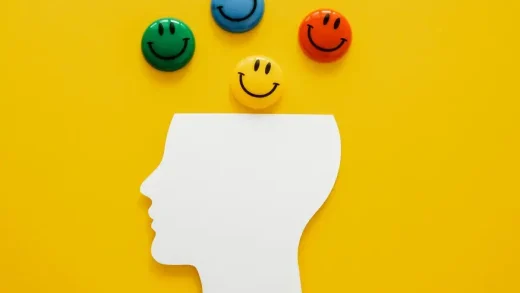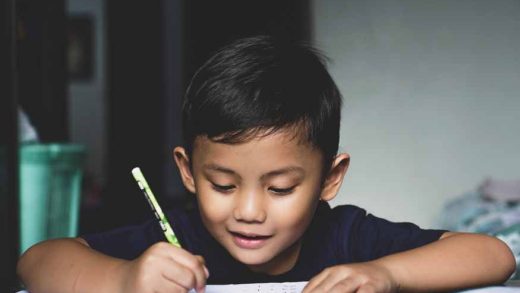Building connections with young children may be exciting and hard at the same time. Toddlers develop a feeling of self and independence as they start to explore their surroundings. It might sometimes clash with the expectations of their guardians. It is important for both your mental health and the emotional growth of these young children that you learn how to build strong relationships with them. Let’s look at how to bond with your toddler healthy relationship tips. We’ll explore useful methods that build respect and understanding amongst people, from skilled communication tactics to tantrum control. The tips will help parents handle childhood’s ups and downs with grace and tolerance.
Benefits of a Strong Parent-Child Bond
The overall growth and well-being of a kid depend on a healthy relationship with your child. Here are a few of the main advantages:
- Deep Connection
- Healthy Home Environment
- Role Model
- Long-term Connection
A strong parent-child relationship helps to have a closer connection with their kids. Kids feel like they are speaking to someone who can connect to them and understand them. They are more willing to open up to their parents. Parents who build friendly connections with their kids learn about their lives. Children are more willing to open up to their parents about their ideas, emotions, and experiences when they feel comfortable with them. They are not afraid of being judged or scolded.
A friendly parent-child relationship can help create a positive home environment. Children, who feel safe and secure in their homes, thrive academically, emotionally, and socially. Being a friend, parents can help create an environment where children feel loved, valued, heard, and respected. These factors lead to greater confidence, self-esteem, and resilience.
Compared to a strict parent, a friendly parent is more likely to serve as a role model for their children. Parents may impart important life skills like empathy and communication to their children. They have to be transparent, truthful, and encouraging. Kids who see their parents as friendly are more likely to model their good conduct after them and form healthy bonds with other people.
Having a good relationship with your child might help parents maintain that relationship as the kids become older. Children’s demands and interests might vary as they go through various developmental stages. Being friends with their children helps parents adjust to these changes and be there for them throughout their lives, offering support and direction. Your children are your only real lifelong buddies.
Ideas on Bonding with Toddlers
Building bonds with toddlers is important for their emotional development. But it can also be difficult. The following are some relationship ideas to help develop strong bonds with toddlers:
- Show Love:
- Say “I love you” Often:
- Set Rules and Limits:
- Emphasise:
- Play Together:
- Make Time for them:
- Eat Meals Together:
- Create parent-child Rituals:
Every stage of life requires human contact and true love for healthy mental growth. You must give your kid hugs and other soft touches several times throughout the day. Treat every contact as a chance to bond with your kid. Make sure to smile, make eye contact, greet them warmly, and build honest interaction.
Although it’s often assumed that we love our kids, regardless of their age. But, be sure to tell them this every day. Telling your kid that you love them without limits might be a great idea, even if they are acting out or doing something you don’t agree with. A simple “I love you” may make a big difference in your connection with your kid in the long run.
As they mature and gain knowledge of their surroundings, children need direction. Make sure your kids understand what you expect of them by having a conversation with them about it. When they break some rules, make sure the punishments are age-appropriate and regular.
Listening is the first step towards connection. Understand your child’s emotions, and express your understanding. Let them know you are there to help them in any way they need. Consider things from your child’s point of view. You may start teaching your child respect for others by listening to them and showing empathy.
Play is important for a child’s growth. Children use it as a tool to enhance their language abilities, communicate their feelings, encourage creativity, and pick up social skills. It’s also an enjoyable method for you to improve the bond you have with your kid. It does not matter what you play. Simply enjoying each other and wanting to give your kid your whole attention is important.
A little daily effort of 10 continuous minutes may go a long way towards helping your kid develop positive communication skills. Put your electronics away, turn off the TV, and spend some time together. Despite all of the distractions and pressures in your life, your kid needs to know that you think they are important.
Sharing a meal as a family may often result in wonderful discussions. It gives quality time spent with your kid. Ask everyone to just enjoy one other’s company by putting aside their phones and other devices. You may also use mealtimes to educate your kids on the value of eating a balanced, healthful diet. It has a positive impact on their general mental health.
Make an effort to spend quality time with each of your children individually if you are a parent of several. Spending quality time with your kid one-on-one may improve their sense of self-worth, the parent-child relationship, and their sense of uniqueness and value. Some parents plan special “date nights” with their kids to spend that time alone.
It’s important to pay attention to your toddler’s specific needs since every kid is different. Although it takes time, patience, and a lot of love to build a successful relationship, the benefits are great with these relationship ideas.
A kid’s overall growth needs to have loving connections. So now you know how to bond with your toddler healthy relationship tips. Through empathy, patience, and active listening, parents may create strong relationships that support learning and mental health. Adult-toddler communication is improved when creative play, storytelling, and light discipline methods are used. For further help and guidance in managing the challenges of toddlerhood, consider Kangaroo Kids International Preschool. Parents may build a strong and lasting relationship with the young children in their care while facing the joys and difficulties of toddlerhood with the help of these tips.









